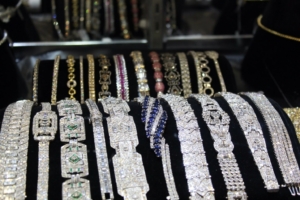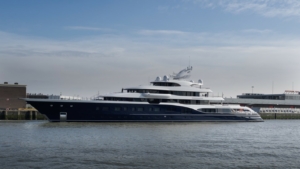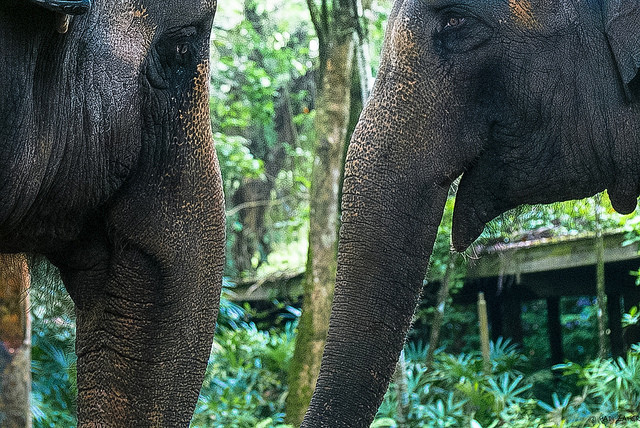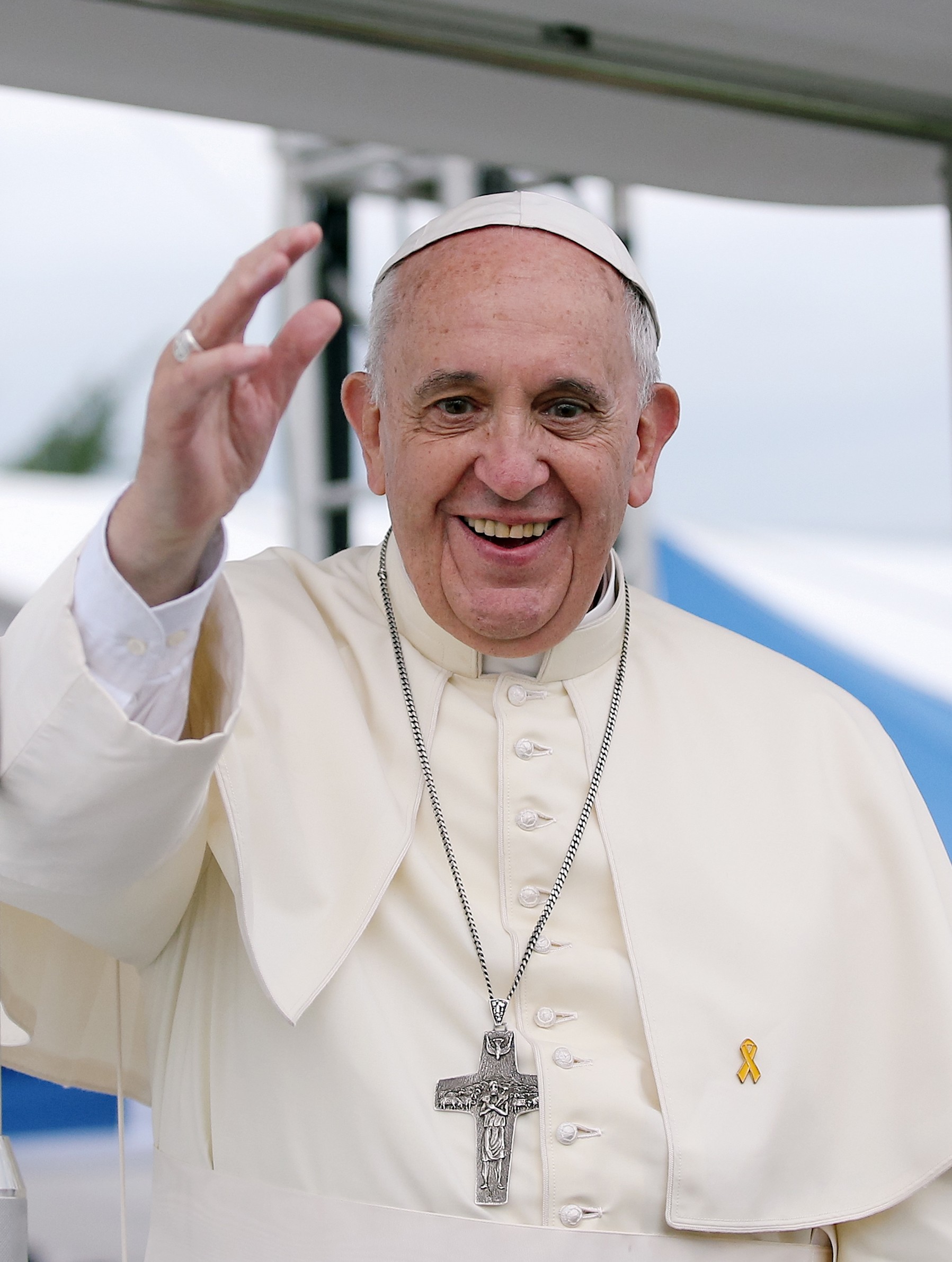Introducing the Luxury Cap Act
by Daniel Wortel-London
Even as nearly a billion people go hungry every day, the wealthiest one percent of the world’s population is purchasing ever-more expensive toys. Yacht sales grew by an average of 22 percent per year between 2014 and 2022. Private jet sales have boomed since the start of the COVID pandemic. The global luxury jewelry market, already huge at $56.5 billion, is expected to grow 8.2 percent between 2023 and 2028. And the luxury car market is projected to double from $1.17 trillion to $2.55 trillion over the same period.
This kind of luxury consumption can be criticized not only on ethical grounds, but also on scientific ones. Luxury transportation contributes disproportionately to humanity’s carbon emissions. Jewels and furs produced for the wealthy lead to biodiversity loss and air and water pollution. Add the economic injustice and health damages faced by the millions of men, women, and children who work to produce these luxury “goods” and it’s clear that luxury consumption is a powerful driver of social and ecological “bads” across the world.
To help curb the excessive consumption of the uber-wealthy, CASSE proposes adoption of a Luxury Cap Act (LCA) by the U.S. Congress. It benefits from successful precedents. Canada, for example, passed a Luxury Tax applying to new cars, boats, and airplanes in 2023. Connecticut and other states levy sales taxes on luxury clothes and vehicles. Even the federal government passed an excise tax on boats, aircraft, jewelry, and furs in 1990, although these provisions were repealed during the Clinton administration.
As environmental damage and inequality mounts, conspicuous and wasteful consumption by the wealthy is a logical and defensible target for action.
The Full Cost of Luxury
What is the cost of luxury? Transportation offers instructive examples. For starters, aviation is responsible for around 3.5 percent of global warming, but more than half of that damage is caused by only one percent of the world’s population.
The wealthy’s outsize impact from flying results from several factors. First, they fly most frequently, with 70 percent of flights taken by just 15 percent of people. In addition, wealthy people often travel first class, leaving a carbon trail as much as seven times larger than the economy-class passenger’s. And of course many wealthy fliers have their own jets. These produce 5–14 times more pollution per passenger than commercial planes. In 2020, private flights in the USA pumped as many tons of greenhouse gases into the atmosphere as all bus travel nationally.

Jewels arrive to market at great social and environmental cost. (International Gem and Jewelry Show, Flickr)
Meanwhile, luxury yachts emit up to 1,500 times as much carbon dioxide as a family car. In the words of the environmental news outlet EcoWatch, they are “by far the worst asset to own from an environmental standpoint.”
Luxury automobiles are similarly wasteful: Compared to standard vehicles, they emit more carbon and use uncommon materials like rare woods. One study found that luxury vehicles produce, on average, 50 percent more carbon emissions than their conventional counterparts.
Carbon pollution isn’t the only harm caused by luxury consumption. Take jewelry, for example. Silver and gold mines cause enormous damage to ecosystems. Nine percent of the Amazon forest was lost between 2005 and 2015 as land was cleared for mining operations. Mining of precious minerals also contributes to air pollution via emissions of atmospheric mercury. These mines also use toxic chemicals like cyanide and sulphuric acid to separate metals from ores. The social and ecological costs of these operations can be horrific. In Nigeria, 400 children were killed in 2011 due to polluted drinking water from mining operations.
Then there’s luxury fashion. A recent study of nine luxury brands—like shoe and bag vendor Prada and general luxury retailer LVMH—found that the companies emitted 13.5 million metric tons of C02 to create products in 2021—as much as the economy of Lithuania. Luxury brands are often worse than their mass-market competitors at addressing labor exploitation in their supply chains. And the chemicals used to process luxury furs such as mink and sable contribute to water and soil contamination. In fact, fur clothing has the highest environmental impact of any textile.
These are just a few of the ways that luxury consumption damages the environment. The list could easily extend to a broad range of luxury goods and services from elite resorts and spas to private helicopter and airline tours. None of these indulgences is necessary, and all are harmful. Of course, curbing luxury consumption won’t solve all our environmental problems. But reining in these excesses would be a good start toward creating a more sustainable and equitable world.
The Luxury Cap Act
The Luxury Cap Act (LCA) is meant to curtail the production and consumption of socially and ecologically harmful luxury goods and services. It will empower the Treasury Department to impose taxes on these goods and services, a tried and true method of lowering demand. The LCA is designed to be both a stand-alone bill and a component of the larger Steady State Economy Act.
Following a short title, findings of Congress, and definitions, Section 4 of the LCA targets frequent flyers. It imposes an escalating tax beginning with the passenger’s second flight and increasing with each flight thereafter in a calendar year. The Federal Aviation Administration will be responsible for creating the database to track flight frequency for implementing this section. Exceptions are made for flight crews, passengers and crew on emergency and public service flights, and similar persons who need to fly regularly. Section 4 serves as a complement to CASSE’s broader Forgoing Flights for America the Beautiful Act, which proposes a broader curb on flying and airport expansion more generally.

Yachts like these are symbols and drivers of our ecological overshoot. (Frans Berkelaar, Flickr)
Sections 5, 6, and 7 impose taxes on luxury aircraft, boats, and passenger vehicles. The tax will equal ten percent of the price of any vehicle listed at more than $557,000 (in the case of aircraft), $223,000 (boats), and $70,000 (passenger vehicles). Aircraft used for seeding, fertilizing, and training, and boats used for commercial activities, will not be subject to this tax.
Sections 8 and 9 address furs, clothing, jewelry, and accessories like handbags and watches. Both sections impose taxes equal to ten percent of retail price greater than $10,000. Section 10 provides for adjusting these taxes for inflation, and Section 11 clarifies the provisions governing taxation in cases when luxury goods are leased rather than sold. This section reflects congressional precedent: in 1990 Congress passed the Budget Reconciliation Act of 1990, which levied taxes on furs and luxury clothing, as well as on luxury yachts, cars, and planes. Most of those taxes were gradually eliminated by Congress, but the LCA re-instates them.
The Luxury Cap Act may be revised pursuant to reader responses and the input of CASSE allies.
The excesses of the one percent cannot be allowed to degrade our planet any further. Such excesses constitute a problem serious enough to warrant federal legislation. Thus the Luxury Cap Act. Those who are not limited in lobbying (like a 501(c)(3) non-profit organization) might consider bringing it to their representatives in Congress.
Daniel Wortel-London is a Policy Specialist at CASSE.







Excellent idea, but why not a wholesale cap on wealth, while you’re at it? Taxing (excessive) wealth only accelerates the flywheel of wealth concentration, increasing the already breakneck speed of environmental and social degradation (via endless economic growth).
If you don’t impose a cap on wealth, it will circumvent or flat-out kneecap partially restrictive measures such as the LCA.
Thank you for your kind response. I 100% agree that a broader cap on excessive income and wealth is necessary, and we will soon be releasing a bill that aims to accomplish precisely that. I’ve written an article on the importance of these caps earlier, which you can read here.
Thanks! Let me give you something in return, a recent interview with Ingrid Robeyns on just this topic (a book of hers on the subject of a wealth cap is about to be published):
A weakness in this proposal is that increased tax raising the purchase price may not deter the wealthy clientele. Trophy purchases are desirable because of the expense, no one wants cheap perfume matter how nice it smells. While the wealthy become wealthier their outlay on luxury is a minimal expense. A stronger strategy may be to tax the suppliers of luxury goods so that its more profitable to make a fleet of busses while reducing aircraft supply. Better still reduce the desirability of unnecessary consumption. AI systems can link consumer purchase payments to the environmental harm being done. First mover ethical consumers can volunteer to display their scores with one another encouraging responsibility while building responsible reputations. The scheme may grow virally driving a cultural shift, a societal change towards consumers demanding efficient goods from ethical suppliers.
You are probably aware that a number of European countries also have or had luxury taxes, including Austria where I live, where it was at 30% for most or all the items you mention. Of course in light of neoliberal politics spreading everywhere it was removed again. But I also think like others it will not deter the super rich from buying these items, or they will circumvent it by buying things and registering for example a ship or plane elsewhere where not such tax exists. I agree in principle to reign in wealth at all levels, with strong general wealth taxes (which existed in the past), inheritance taxes, and also caps on income and wealth (for income a general internally agreed upon level is 1:10 to 1:20 between lowest and highest income (which of course also means raising the lowest incomes to decent levels or through help of UBI). And of course change in mind set of what is considered appropriate and responsible, sufficiency and frugality as the new norm – hence education, education, education. But will not happen in a capitalist system as we have now, unless it is heavily regulated and controlled (according to social and environmental needs) in a transition towards a different economic system altogether.
I definitely support the idea of curtailing excess spending on needless junk (that damages the environment and is not socially beneficial) that is probably instigated by some sort of human instinct to compare yourself against your peers and seek some sort of perception of power or importance. However, I think it would be an absolute disaster to pass a law trying to figure out every way a wealthy person would do such a thing. This sounds overly complex and full of loopholes that if anything changes the rules of the game to favor the .1% against the 1%. Curtailing excess in my opinion should be done through very simple ideas that cannot lead to loopholes, such increasing the cost of carbon. This sounds like a total disaster to me, it also shows a lack of faith on humanity, like a teacher making a bunch of rules for kids in the class to deal with bad behavior but without really teaching them how to be human beings.
The association I belong to here in France, Attac, had a petition to National Assembly for a total ban against private jets (with the exception of health emergency flights). This petition had the support of the third largest political coalition, on the left, including 3 major parties. It went to a vote and was defeated, but there was some healthy debate.
In the beginning we all paddled our own canoe in life leaving little harm behind. Free market economics has led to a situation in that the finite resources are being put into paddling superyachts with the owners probably not even being on board.
We’re not in our canoes anymore, we’re paddling our lives away to keep the super yacht moving.